
OR
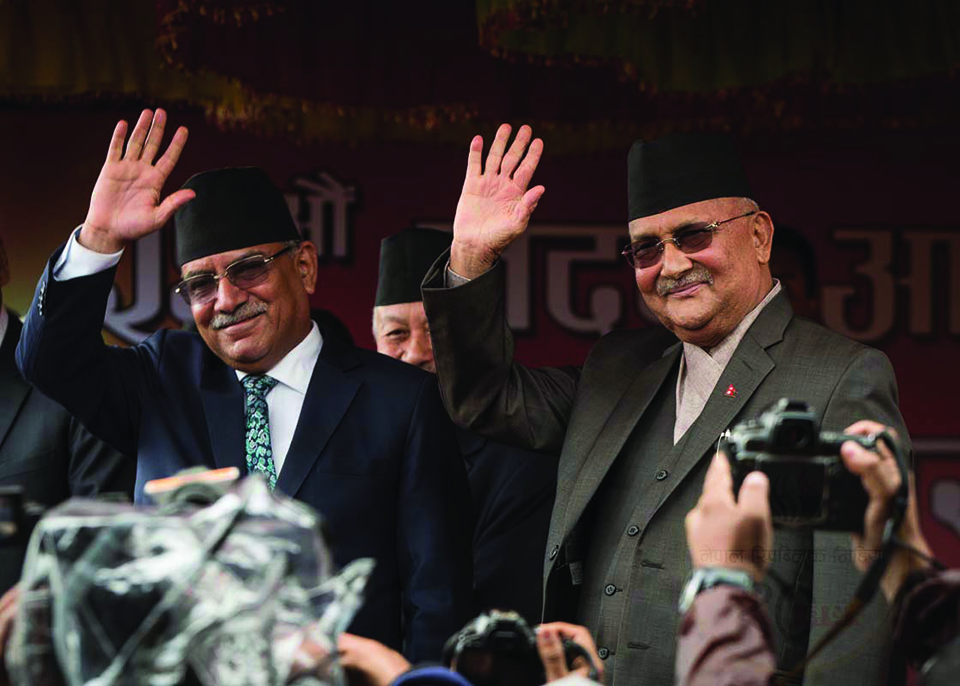
Baluwatar could have handled the situation more subtly by taking an early decision and wording its public position with utmost diplomatic nuances
Prime Minister KP Oli’s prime problem is his own party. He is popularly mandated with a two-thirds majority that, to rephrase a British scholar’s observation made for his country, can literally amend the Constitution, except to make a man a woman and vice versa. In reality, however, numbers alone don’t always work.
The disenchanted public mood could escalate and derail the “achievements” made in the loktantrik years since 2006. Oli will have to thread his way through the maze of individual interests and negotiate with NCP factions keen on having their voice get “due priority”. Likewise, the main opposition Nepali Congress wants to bulldoze the path with its own verbal onslaughts and street insults.
People have outgrown promises of political parties and empty prattles of prime ministers. Oli needs to overhaul his staff functioning and come up with workable policies. Convergence of the best and brightest of minds should not get bogged down by incongruities fuelled by feuding factions.
What went wrong?
Bam Dev Gautam’s desperate desire to enter parliament through a dubious route opened a pandora’s box, sending cold calling to some and an elusive opportunity for others. After Pushpa Kamal Dahal’s China visit fiasco and Gautam’s move came a cropper, Dahal made extravagant claims in his public display of support to the government in a transparent, but unconvincing manner. Dahal has been trying his best to overcome Oli’s persistent doubts.
Only the language of action and prompt delivery can breathe life into people’s hopes. Oli took it for granted that the two-thirds majority his government. Once he tested the ground, it proved to be a grueling road constructed through decades of protest culture cultivated with no-holds-barred approach.
Delhi finds Oli bad business while Beijing does not buy Dahal’s pretensions any more. Oli has oiled his way to the Chinese tentative embrace in exchange for assuring a consistent policy with due adherence to Beijing’s sensitivities. He needlessly puts the blame on Nepal’s ambassador to Beijing, Lila Mani Poudel, for lack of progress in efforts at trilateral talks on Nepal’s Limpuadhura that India currently occupies. Actually, the issue is beyond Ambassador Paudel and Foreign Minister Pradeep Kumar Gyawali’s competence.
That Dahal could not get an invitation to visit Beijing and meet President Xi Jinping recently is Bejing’s clear message in maintaining a distance from his game plan to outscore and supplant Oli. Dahal’s flip-flop has put off PM Oli. Miscalculation and the resultant cross-fire have eroded his credibility.
The government seems to have no idea about the strength and breadth of covert moves by vehemently anti-communist forces of Western make. A successful, democratically elected communist government with a landslide majority would only be an incentive to communist groups elsewhere, too. A term like “socialist” is anathema whereas “communist” constitutes a rigidly held taboo in the United States. In this context, changes in media houses cannot be treated as a mere routine business.
The government’s last-minute decision not to send Nepal Army team to participate in the India-hosted joint military drill designed for BIMSTEC members continues to have its consequences of the embarrassment New Delhi nurses. Anyone familiar with how India’s foreign intelligence wing RAW and External Affairs Ministry operate would not be surprised how the southern neighbor, so used to having its say through, finds its domineering pride rubbed the wrong way.
Arms and army
Baluwatar could have handled the situation more subtly by taking an early decision and wording its public position with utmost diplomatic nuances. “India is fire and fury with Oli. It’s bound to have consequences,” according to a highly informed source, at whose doorsteps political bigwigs troop for the privilege of informed consultations.
There are quarters in Nepal Army carrying the opinion that a military drill does not denote an alliance but an exercise and opportunity to share, practice and learn. Another aspect is the complete overhaul of intelligence agencies. Over the years, foreign pressure for not setting up a counter-intelligence agency in Nepal has its own tale. That the Defense portfolio in the cabinet does not get high priority is a telling story. Deputy Prime Minister Ishwar Pokharel was not aware of his defense portfolio until the last moment.
Some talk has been going on, of late, to plug loopholes and strengthen intelligence agencies, much to the chagrin of foreign forces and their proxies in Nepal. Another reason for their consternation is Nepal’s probe for alternative transit routes beyond the concept and scope of existing and traditionally discussed alternatives. During King Gyanendra’s time, the idea was taking a positive shape, and the Oli government seems to be taking interest in giving continuity to it.
Rajendra Chhetri became the first army chief after the 2006 political changes to visit Pakistan. Madhav Kumar Nepal’s government, nearly a decade ago, stopped the scheduled visit to Pakistan by the team of Bhim Rawal (Home Minister), Chhatra Man Gurung (Chief of Army Staff), Sanat Basnet (Armed Police Force Chief) and Ashok Dev Bhatta (National Investigation Department Chief).
Baburam Bhattarai, in 2013, proposed the then Chief Justice Khil Raj Regmi’s name for serving concurrently as chairman of the council of ministers and conducting elections. Initially very reluctant to make the move, Bhattarai eventually relented.
It is also revealing that the visitors’ book at Shital Niwas during Ram Baran Yadav’s tenure in itself provides nuggets of information. The names, dates and order, among other details in the list, surreptitiously obtained and scrutinized by unauthorized individuals and agencies, answer and provoke many questions.
Omnious for Oli
Civil servants close to NCP attribute Oli team’s lackluster performance to his inability to appoint the right people in the right place, including the “continuation” of chief secretary Lok Darshan Regmi who, to them, functioned like home minister during the Deuba government’s dying days, when Janardan Sharma had home portfolio.
Finance Minister Dr. Yuba Raj Khatiwada should have been advisor and not finance minister because of the cut-throat competition among the NCP politicos, from both UML and Maoist factions for the job. Rivals’ disappointment turned into anger and led to critical voices against Khatiwada’s national budget estimates. As in the past three decades, the National Planning Commission hibernates without convincingly measurable and visible results. Its relevance in its existing form and functioning presents a pathetic sight.
Amresh Kumar Singh, of Nepali Congress, and Rastriya Janata Party’s Rajendra Mahato have been talking about fresh movements for Madhesi rights with an added issue of Hindu State in their kitty any time after Chhat festival next week. Sensing something might be round the corner, Madhes-based Sanghiya Samajwadi Forum leader Upendra Yadav, in a fence-sitter’s position, remains busy calculating which way the current political wind blows.
Uncertainty unsettles any country’s neighbors and other powers that do not wish to be surprised. Several Indian leaders of reckoning explain that removing the monarchy was never their government’s menu. Main opposition party’s matriarch Sonia Gandhi is learnt to have reassured Nirmal Niwas that it was never their intention to do away with monarchy.
Getting a sense of likely political changes, a few noted party leaders are seeking audience with former King Gyanendra, who wants to receive them only if they came up with concrete proposals, including a commitment to making firm public pronouncements and taking initiatives accordingly. The prospect of a communist government completing a full-term smoothly sends a shudder down the spines of “democratic forces”. They look for a “logical conclusion”, depending upon, especially, political parties, stirred up by an emerging and firming up of a democratic alliance, and their now-or-never mission.
You May Like This
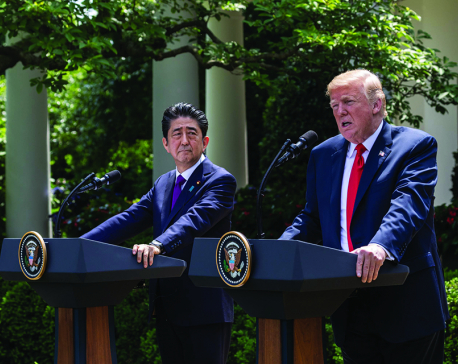
China, Japan, and Trump’s America
It is difficult to remember that a little over two decades ago, many Americans feared being overtaken by Japan, not... Read More...
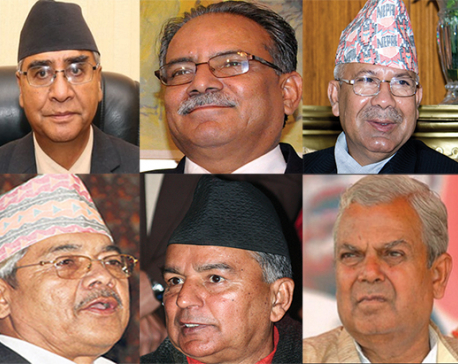
No country for new leaders
Obama became the US president 13 years after Deuba became Nepal’s prime minister in 1995. When Jhalanath Khanal became UML’s... Read More...

Why privacy bill should be amended
The state has no right to control people’s freedom and liberties while introducing right to privacy laws. No law should... Read More...





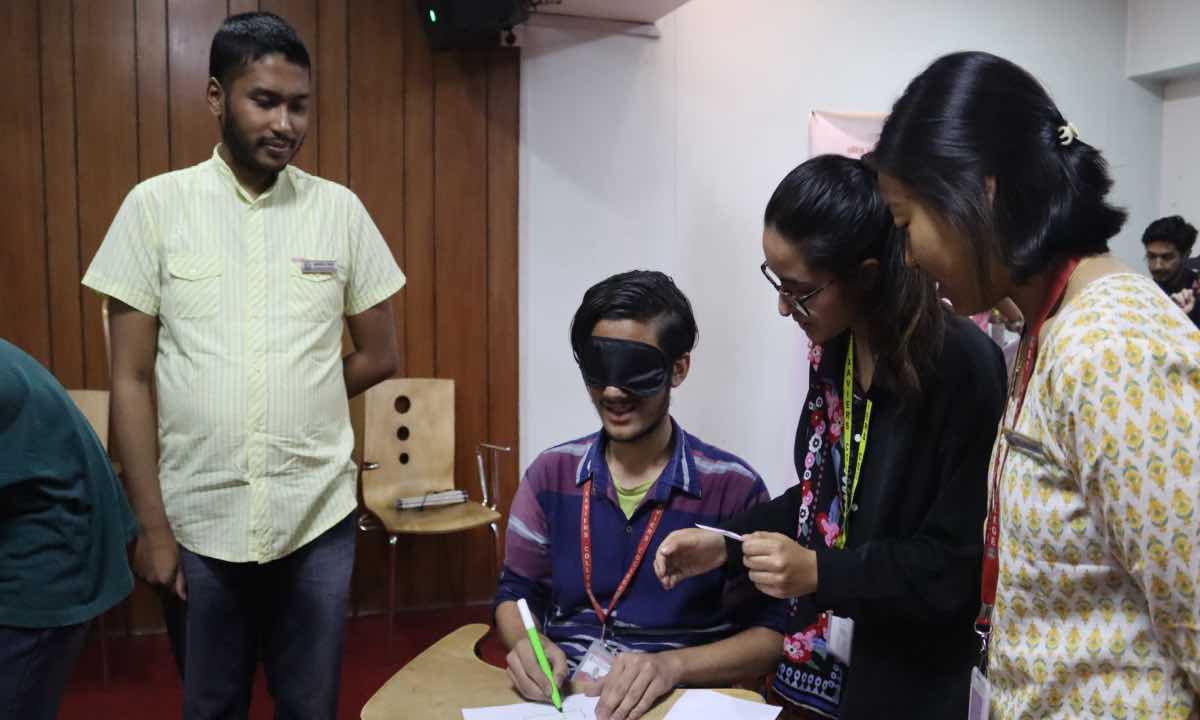

Just In
- Forest fire destroys 13 houses in Khotang
- First meeting of Nepal-China aid projects concludes
- Lungeli appointed as Minister for Labor and Transport in Madhesh province govt
- Bus knocks down a pilgrim to death in Chitwan
- One killed in tractor-hit
- Karnali Chief Minister Kandel to seek vote of confidence today
- Chain for Change organizes ‘Project Wings to Dreams’ orientation event for inclusive education
- Gold price decreases by Rs 200 per tola today










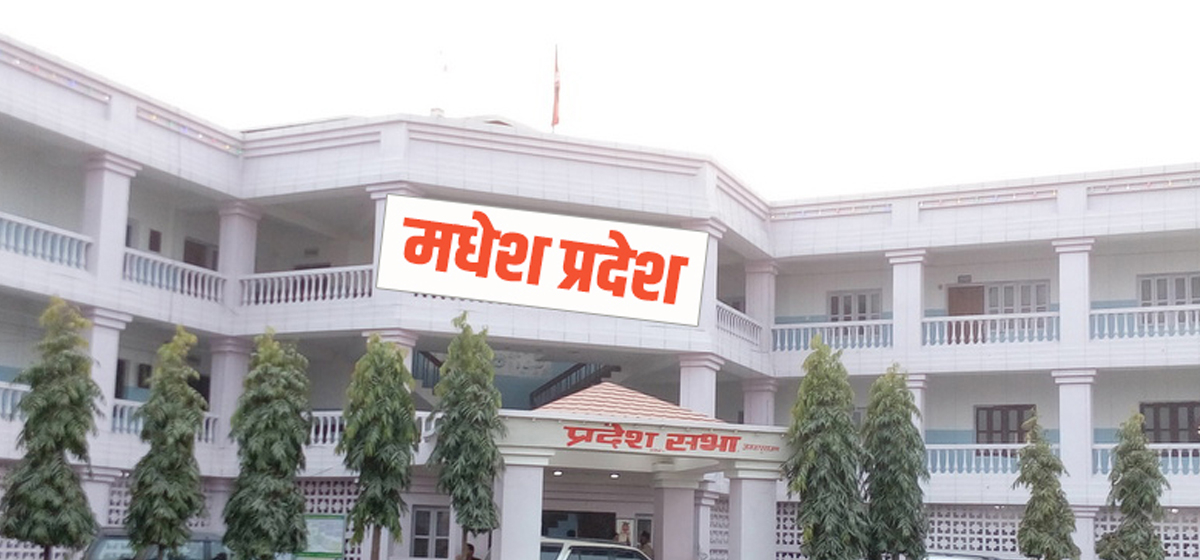


Leave A Comment